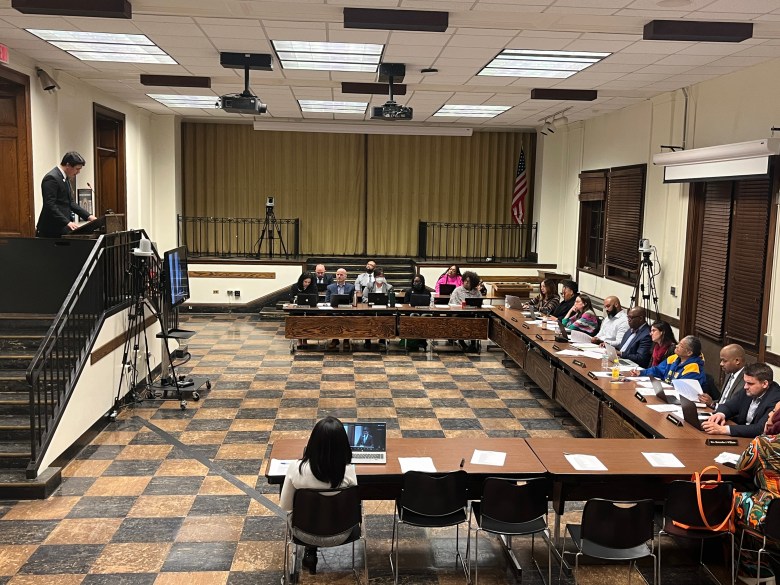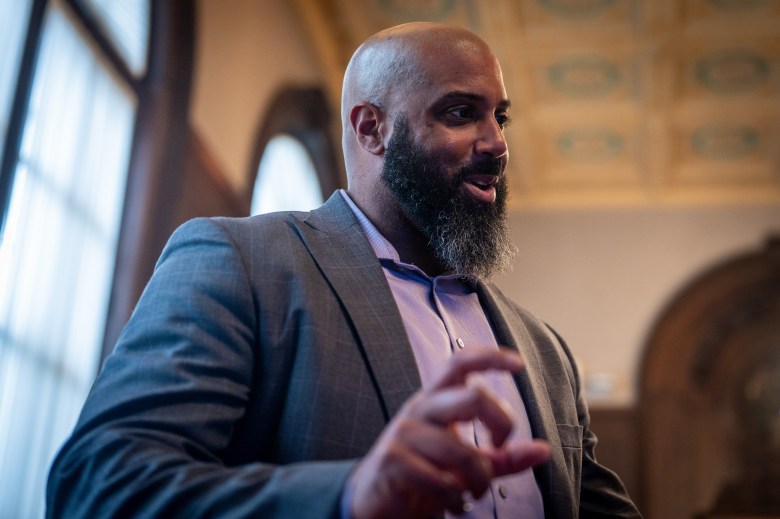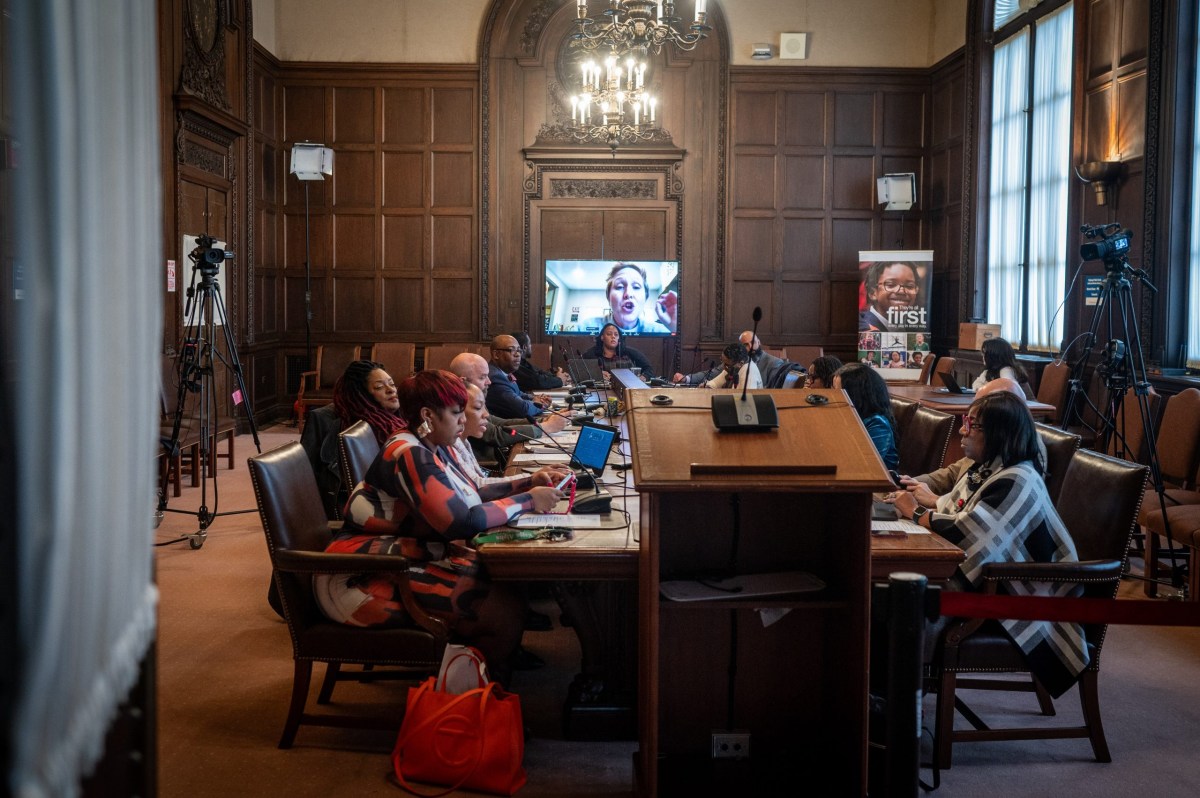Updated (1/25/24): The Pittsburgh Public Schools board on Wednesday passed a motion to table a resolution for appointing student board representatives, shelving it indefinitely.
Board member Jamie Piotrowski said she supports amplifying student voices and the board should create a consistent program through the policy committee instead of passing a resolution. She added that passing a resolution to appoint two students would not represent the whole student body, including many English language learners or students with disabilities.
“This is a resolution that then becomes very difficult to find in Board Docs and then as the board changes, this program could essentially disappear,” she said.
Board member Sala Udin, who introduced the initial resolution and voted against tabling, said he made many changes to the resolution based on recommendations from board members, adding that the board would be “sending a very negative message to the students” if they tabled the resolution.
“We need to be lifting them up, not muzzling them,” he said.
The board plans to have conversations in the upcoming policy committee meetings to decide a plan forward.
Reported (1/23/24):
Pittsburgh school board considers adding student seats
Pittsburgh Public Schools is expected to vote tomorrow on a proposal to add two high school student representatives to its board.
Those in support of the resolution, proposed by board member Sala Udin, include students who say they lack input in decisions about their education.
“We must ensure that the voices of students not only have room in the superintendent’s vocal point but also the actual policymaking body of this system,” said Allderdice High School senior Pavel Marin, during a public hearing on Monday night.
The resolution, if passed, would add two students from 11th and 12th grade to serve as liaisons between the board and the student body, and they will be required to submit a monthly report.
Students would be selected by a committee of high school principals and the superintendent would make a suggestion to the board before the start of the next school year. The students would not be given voting power or access to executive sessions in which privileged information is discussed.

During a public board meeting last week when the resolution was introduced, board member Devon Taliaferro urged the board to examine their governing process before adding student voices. She said the board should explore other options that involve more students such as the Superintendent’s Student Advisory Council [SSAC], a student-led panel that discusses school-related issues with the administration.
School officials, while saying they support more student input, appear undecided on the proposal.
Board member Dwayne Barker said while he wants to prioritize student voices, he does not want to rush the process of adding student representatives to the board. The board could hold multiple listening sessions at schools, led by students, to increase student voice in the district, he added.
“We know it’s long overdue,” said Barker. “Student voice is certainly important.”
Board President Gene Walker said he supported the idea of student board members but the board should work to clearly define the students’ role to create a positive experience.

“There’s some work that we need to do internally, from a governance standpoint, to put us in the right position to be able to do that effectively,” he said.
In a written statement, former board member Pam Harbin said the resolution confines the district to a single method and the board should consider other ways, such as electing student representatives. She added that the board should take feedback from students to make the process meaningful and equitable.
Last year, the PPS board gave itself a failing grade in a self-evaluation, as reported by WESA.
Za’Morrie Reeves, a junior at Allderdice, intends to apply to be a student board representative if the resolution is passed.
Reeves, who is also part of the SSAC, said he believes student board members would involve students at policy-making and districtwide levels as opposed to SSAC’s work in individual schools.
“I can help by just being a voice for those students who either don’t feel comfortable using their voice or don’t know where to use your voice,” he said.
Lajja Mistry is the K-12 education reporter at PublicSource. She can be reached at lajja@publicsource.org.







